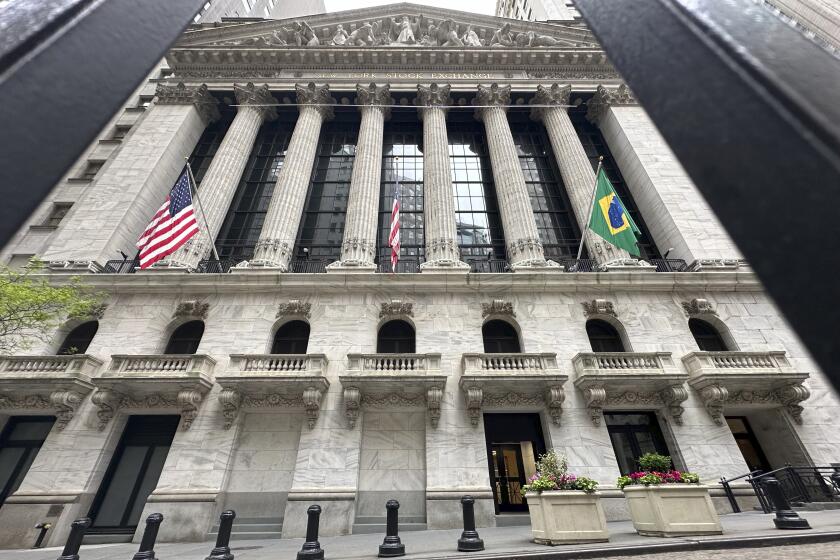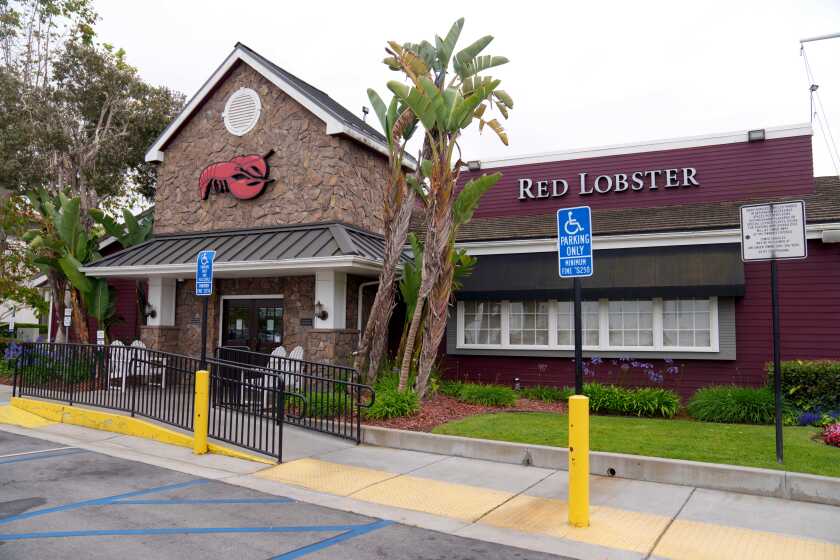Crude Oil Prices Continue to Climb
Oil prices resumed their upward march Monday, boosted by a pledge from Iraq to cut off oil exports for a month and labor problems in Venezuela.
Meanwhile, retail gasoline prices continued to creep higher, although motorists can look forward to a slightly cheaper fuel bill this summer driving season than during the previous two summers, the Energy Department said Monday.
Another day of Middle East unrest pushed the price of West Texas intermediate, the U.S. benchmark crude, up 33 cents to close at $26.54 a barrel on the New York Mercantile Exchange.
The current crude contract, which traded as high as $28.35 last week, Monday touched $27.23 a barrel after Iraqi President Saddam Hussein ordered a 30-day suspension in oil sales to protest Israel’s military occupation of Palestinian areas. But reports late in the day that the Israeli army was beginning to withdraw from some West Bank cities helped quiet the market, traders said.
“Every minute, it seems, we’ve got new news,” said Phil Flynn, senior energy analyst with Alaron Trading Corp. in Chicago. “This could be a move that supports a more calm situation and would begin to take some of the war premium out of the market.”
Iraq exports about 2 million barrels of oil a day, and the United States buys slightly more than one-third of that, accounting for about 4% of U.S. energy needs, according to Energy Department statistics. Other members of the Organization of the Petroleum Exporting Countries have about 5million barrels of unused capacity and could make up any shortfall, should they choose to do so, said Fadel Gheit, energy analyst with investment firm Fahnestock & Co. in New York.
But analysts warned that oil markets are extremely nervous, making large price swings likely.
Venezuela’s labor troubles, which sharply reduced exports Monday from this major U.S. supplier, could provide another spark for an oil price run-up. A 24-hour strike has been called for today in support of dissident managers of Petroleos de Venezuela, who were replaced with new executives by President Hugo Chavez.
Higher oil prices have translated into higher gasoline prices across the United States.
U.S. Energy Secretary Spencer Abraham said the administration is “taking aggressive action to prevent further steep price increases at the pump,” which have risen nearly 27% in the last six weeks, hitting $1.413 a gallon Monday for self-serve regular gasoline. But Abraham outlined only a few vague actions, including activating a hotline to report price-gouging and finding ways to get Americans to drive more efficiently.
The average price of gasoline nationwide is still 8.7 cents a gallon lower than it was at this time last year, according to the weekly survey of more than 800 service stations by the Energy Information Administration, the Energy Department’s statistical arm.
The average gasoline price in California rose 3 cents in the last week to $1.622 a gallon. A year ago, the California average was 13.2 cents higher.
Acting EIA Administrator Mary Hutzler acknowledged that disruptions in petroleum supply, most likely from continued unrest in the Middle East, could foul up the agency’s relatively rosy summer gasoline forecast of an average price of $1.46 a gallon nationwide, 8cents lower than last summer’s average. Higher inventories of gasoline should help buffer price increases, she said.
The price spikes of previous summers that plagued California and the Midwest are not expected to recur unless a problem occurs at a refinery or a pipeline, EIA economist David Costello said. California is vulnerable, however, because oil inventories are only slightly more cushy than last year, he said.
The predicted average U.S. gasoline price of $1.46 a gallon is the third-highest on record, after the summers of 2001 and 2000, the EIA said.
But adjusted for inflation, that price is a comparative bargain: The record inflation-adjusted summer gas price was in 1980, at $2.65 a gallon in 2001 dollars, the EIA said.
*
(BEGIN TEXT OF INFOBOX)
Top Producers
(text of infobox not included)






